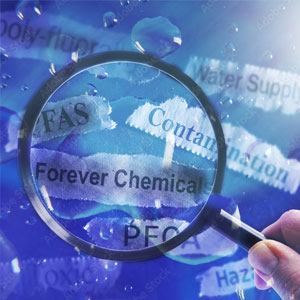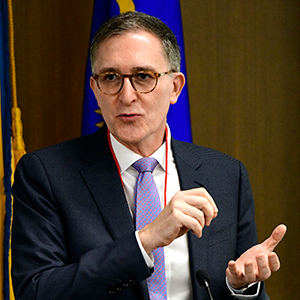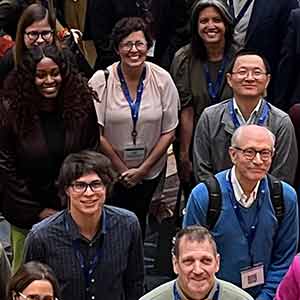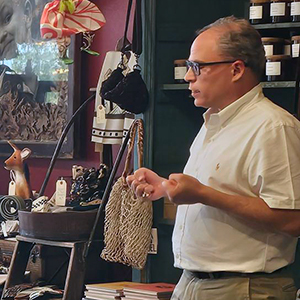Successful public health programs tend to rely on people adopting certain behaviors. In a country like the United States, these behaviors may include simple handwashing or obtaining timely cancer screenings. In low-and-middle-income countries, the behavior may involve using a different type of cookstove to reduce smoke inhalation. In all cases, the changes improve general health status.
Identifying barriers to adoption of these behaviors and finding strategies to overcome those barriers is the work of implementation scientists. The field also studies how to scale-up evidence-based interventions to have the greatest impact on public health.
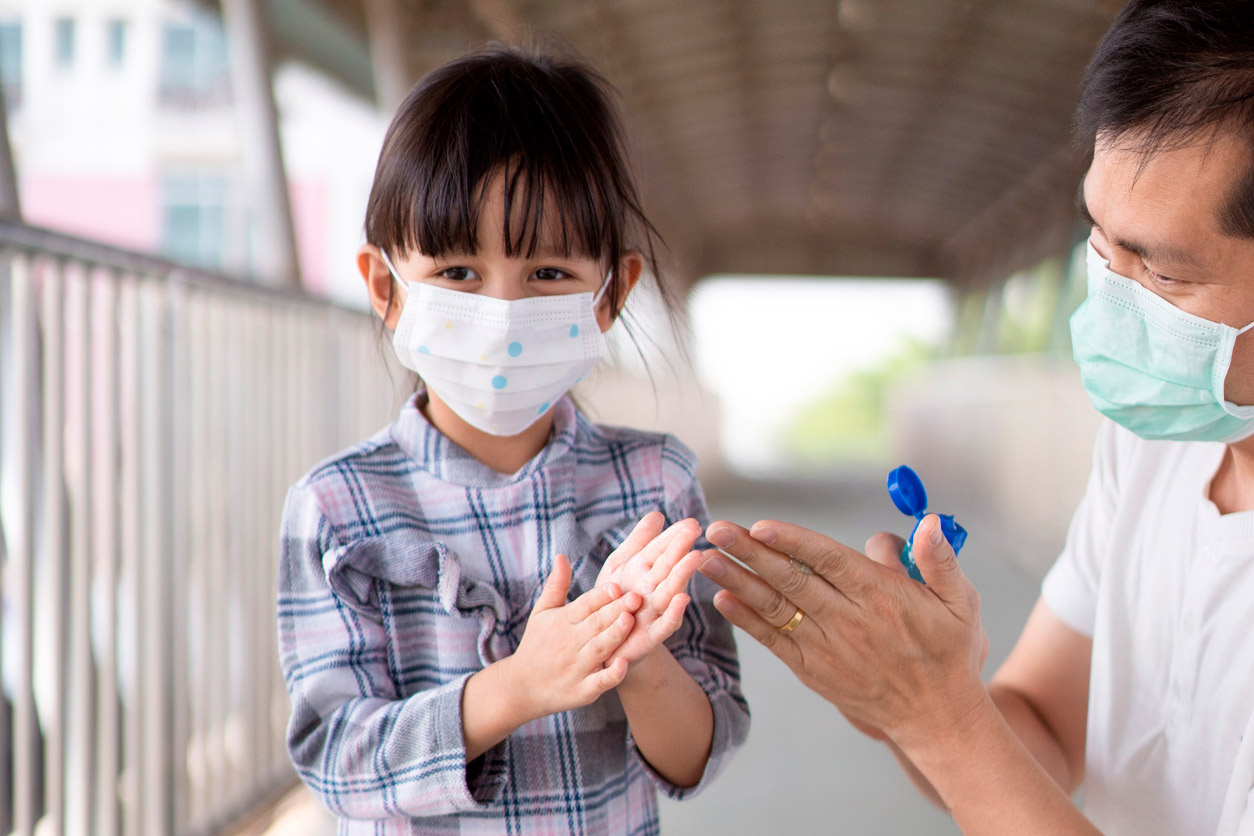 Studying strategies for adopting health-related actions in school, work, clinic, and many other settings is part of implementation science. (Photo courtesy of Sukjai Photo / Shutterstock.com)
Studying strategies for adopting health-related actions in school, work, clinic, and many other settings is part of implementation science. (Photo courtesy of Sukjai Photo / Shutterstock.com)Gila Neta, Ph.D., epidemiologist and program director for implementation science at the National Cancer Institute, spoke to NIEHS about her field and its application to environmental health research during a Feb. 12 lecture for the Keystone Science Seminar Series.
“Implementation science has grown tremendously throughout other parts of NIH [National Institutes of Health] but is a gap area at NIEHS,” said lecture host Lindsey Martin, Ph.D., from the NIEHS Division of Extramural Research and Training. “When I started thinking about incorporating implementation science into our programs, Gila came to mind as the ideal person to help us bridge implementation science and environmental health research.”
Closing gaps
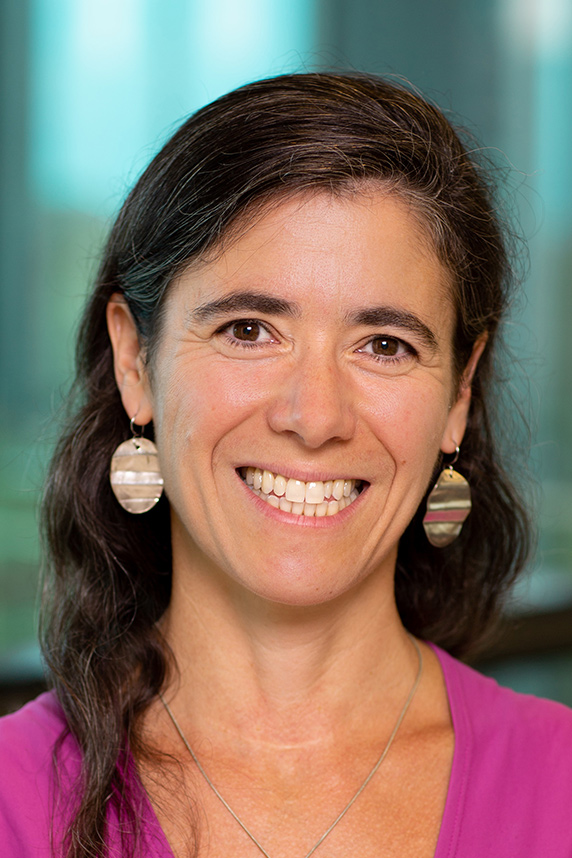 “Implementation science can help identify strategies to drive policy and practice change,” said Neta. “But it’s important to consider implementation early in the research process.” (Photo courtesy of NCI)
“Implementation science can help identify strategies to drive policy and practice change,” said Neta. “But it’s important to consider implementation early in the research process.” (Photo courtesy of NCI)While some health-related behaviors may sound straightforward, implementation of evidence-based practices across a population is not easy.
Determining effective ways to close gaps between what scientists know and what people do is a goal of implementation science. Researchers in the field study methods and strategies to address the fact that public health and health care systems often struggle to convert fact-based knowledge into practices or policies.
“Through this research, we can discover how to reach all people who may benefit from an effective intervention,” said Neta.
Environmental health application
“Environmental health is the next frontier in implementation science, and it’s a natural fit,” continued Neta.
According to Neta, theme two of the NIEHS strategic plan, “Promoting Translation – Data to Knowledge to Action,” lays groundwork for further incorporating implementation science into the institute’s research programs.
Within that theme, community engagement is already a hallmark of NIEHS-supported research conducted in, for example, the Core Centers program and the Superfund Research Program. “It’s critical to ensure implementation does not take a top-down approach but that the intervention is something a community wants to adopt,” said Martin.
Do not leave it to chance
Evidence-based interventions are rarely implemented based on merits, according to Neta. And adaptation happens all the time regardless of intention.
But purposeful change to improve population health requires focused effort, she said. By applying implementation science frameworks and models, health practitioners may:
- Reduce program costs.
- Improve health outcomes.
- Decrease health disparities in a community.
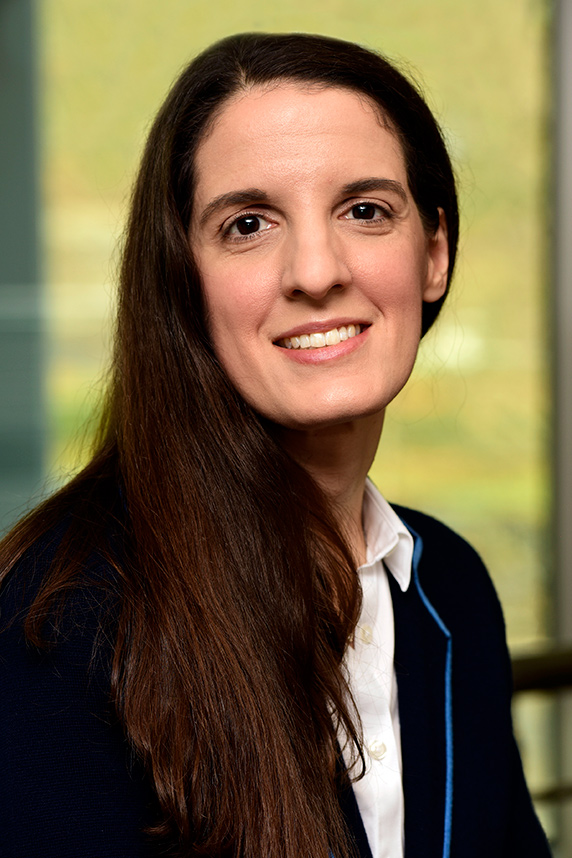 “I met Gila in 2017 when I was in a training program sponsored by NIH,” recalled Martin. “She was one of my small group mentors and really sparked my interest in implementation science.” (Photo courtesy of Lindsey Martin)
“I met Gila in 2017 when I was in a training program sponsored by NIH,” recalled Martin. “She was one of my small group mentors and really sparked my interest in implementation science.” (Photo courtesy of Lindsey Martin)NIEHS opportunity
“Implementation science can aid environmental health researchers in addressing disaster response and climate change, both of which are potential growth areas for NIEHS,” said Martin.
Fueling the growth, NIEHS is a participant in trans-NIH funding opportunities for researchers in implementation science. The main funding announcement is open until May 2022.
NIH invites research grant applications on strategies to disseminate and implement evidence-based practices into public health, clinical practice, and community — workplace, school, or place of worship — settings. In addition, studies on dissemination and implementation research methods and measures are encouraged.
Opportunities for exploratory or developmental grants and small grants are also available.
Citations:
Bauer MS, Damschroder L, Hagedorn H, Smith J, Kilbourne AM. 2015. An introduction to implementation science for the non-specialist. BMC Psychol 3(1):32.
Rosenthal J, Balakrishnan K, Bruce N, Chambers D, Graham J, Jack D, Kline L, Masera O, Mehta S, Mercado IR, Neta G, Pattanayak S, Puzzolo E, Petach H, Punturieri A, Rubinstein A, Sage M, Sturke R, Shankar A, Sherr K, Smith K, Yadama G. 2017. Implementation science to accelerate clean cooking for public health. Environ Health Perspect 125(1):A3–A7.
Quinn AK, Neta G, Sturke R, Olopade CO, Pollard SL, Sherr K, Rosenthal JP. 2019. Adapting and operationalizing the RE-AIM framework for implementation science in environmental health: Clean fuel cooking programs in low resource countries. Front Public Health 20(7):389.
Chen E, Neta G, Roberts MC. 2020. Complementary approaches to problem solving in healthcare and public health: implementation science and human-centered design. Transl Behav Med; doi:10.1093/tbm/ibaa079 [Online 28 September 2020].
(Carol Kelly is managing editor for the NIEHS Office of Communications and Public Liaison.)





